Can I start a new business during my MBA year? Can I still run my business and study for an MBA alongside? How do I develop my ideas before taking the leap? What resources are available to budding entrepreneurs in Cambridge itself?
We invite industry expert and serial startup entrepreneur Peter Hiscocks, alongside Cambridge MBA alumni and founders, to answer common questions about entrepreneurship and the MBA.
Should I start the MBA programme with a business idea in mind or should I you try and develop an idea during my time on the programme?
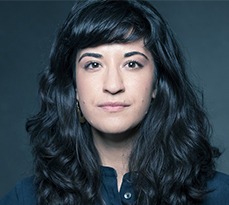
Either! The skills you learn across the MBA will really help you develop and foster your existing business ideas or drop you into a melting pot of experiences and expertise to help you develop a brand new one. A startup idea can also change and develop during your studies, so it is often best not to be too fixed in your goals and outcomes.
Alumna Amy Munz (MBA 2016), CEO and Co-founder of Acting Systems, a social media consultancy developing AI-based software that fosters more empathetic content, says, “You might find that the business idea that you come in with will change during the year, as it did for me. I came in with one idea and it changed through conversations with my cohort and through the consultancy projects working with real companies and seeing what their actual needs were.”
For Amy her MBA year became like a testing ground for her idea, “Come to the MBA with a plan but also be open minded to other ideas and options as you journey through your MBA year.”
What support is there for entrepreneurs across the wider Cambridge ecosystem?
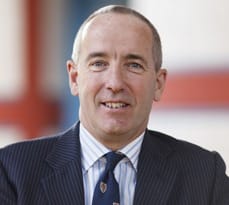
Peter Hiscocks, Fellow in Entrepreneurship and Innovation Management at Cambridge Judge Business School (CJBS), has launched several successful ventures after a career in the private sector, as well as chairing a £20 million seed-fund that supports new business startups.
He has been part of the entrepreneurial ecosystem around Cambridge for over forty years.
“We need support systems in place as we grow a business. Here in Cambridge, Europe’s largest and most successful entrepreneurial ecosystem, we have a lot of incubators and an increasing number of accelerator programmes, where you can benefit from the network of advice and knowledge around you.
“The University has its own incubator called IdeaSpace. St John’s Innovation Centre, Cambridge’s first incubator, is one of the biggest innovation centre incubators in Europe. The Business School itself has its own accelerator. Carbon 13 is a new cleantech accelerator that’s been set up. And there’s another accelerator called Deep Tech Labs, which is an AI and tech accelerator. So, when you’ve got your idea and you think you really want to get going, there are plenty of places to help you.”
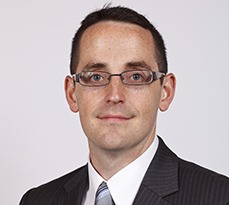
Michael Birdsall (MBA 2012), founding director of AI based education consultancy, Two Sigmas, and MBA alumnus adds, “What you have at Cambridge is access to some of the best talent in the world. When I started my company, Two Sigmas, I was able to access some of the world’s top mathematicians here, as I was looking to get my AI company going in Europe.
“A lot of my MBA classmates have stayed around in Cambridge, and some have taken their companies public. The attraction for them here is not just local but international. They are in the global market here in Cambridge.”
Peter adds, “And there are great contacts here for financing and growth. All entrepreneurs need money to launch a new business, and there is money in Cambridge. We have five major VC firms in Cambridge, and several large business Angel networks.”
Can I still run my business while studying for an MBA? How will I manage the time and resources it needs?
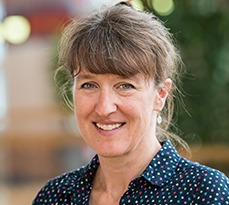
When you start your MBA year you have to be very clear about the amount of studying and assessments required as part of your MBA degree. A Cambridge Master’s degree is a serious undertaking. In addition, the University of Cambridge policy does not allow you to work alongside studying, but only during the holiday period, of which there are very few on the one-year MBA programme.
“If you are stepping out of an existing business, you do need a solid plan to manage the vacuum you may leave for the MBA year,” says Cecile Gani, CJBS Careers, “There just isn’t the bandwidth or the time to manage both.”
Daniel Morales Valdivia (MBA 2017), Director of Peru-based consultancy, Monitrade, agrees. “The MBA leaves you not a lot of time for doing activities in parallel and much less for running an existing business. One of my own targets was to start a business during my MBA and I found that to be extremely difficult, not only because I was looking to build a team and I was looking for resources at the same time, but also just because of lack of time.”
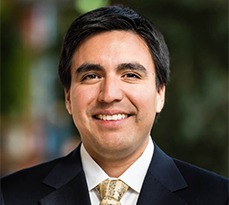
Amy Munz also found her studies left little time for wider development of an existing venture, “For me that’s what the MBA helped me do, it helped me focus. There were so many aspects to my business ideas but what could we practically get done and deliver in real time?”
What elements of the curriculum are most useful for entrepreneurs?
Peter points out the value of a learning mindset when developing new ventures, “Entrepreneurship is not about luck or magic – it is about learning. Entrepreneurship is the study of entrepreneurs and how to start and grow businesses. Many people think you can just ‘wing it’ – that’s not the case for sustainable businesses.”
An MBA empowers people to become entrepreneurs. That could mean launching your own startup, or working for an early-stage venture, or it could mean being an ‘intrapreneur’, within a large corporation.
“To pursue these, you need a large amount of motivation, persistence and diligence – these need to come from you,” says Cecile. “But the MBA will give you the skills to approach your goals with confidence. We will also introduce you to the supportive networks around.”
You will require some academic foundations through the teaching on the MBA – Entrepreneurship is one of the core courses and it starts in your second week in Cambridge. It’s taught by lecturers like Peter who are also practitioners.
Another core course that’s critical to founders is Management Praxis, where you learn about building and working in teams, both in theory and practice.
“Learning the soft skills, understanding emotional intelligence and understanding how leadership works and how to build an effective team are key to starting a business,” says Peter. “As a scientist these ideas were quite alien to me at first.”
Students tell us that one of the most fun elements in the academic programme is the Cambridge Venture Project.
Cecile says, “You work in a team of five classmates for two months part-time with a local startup, and it’s exciting because you work on strategic topics that will influence the venture’s future. Often you work with company founders and with an experienced mentor. Students have worked with some inspiring innovators on things that didn’t even exist yet. It’s fun and it’s inspiring for you as a future entrepreneur.”
But in addition, in your second and third term, you can specialise via the Entrepreneurship Concentration and some electives. Some of the electives are specifically for entrepreneurs like Entrepreneurship through acquisitions or Entrepreneurship in practice, or how to start a company or venture capital. Other electives less specific to entrepreneurs – but still vital – are sprints, leading effective projects, digital marketing, Six Sigma for operations, strategic pricing, building customer centric organisation strategies, cost management, thinking strategically, and so on.
“As well as the academics, much of entrepreneurship is about practical skills, and the Career service runs a lot of workshops to teach you how to be more efficient at articulating your personal brand, for example. We also teach you to network efficiently, to negotiate, to present and pitch both online and in person.”
How does the Cambridge network support your entrepreneurial journey during the MBA year?
What support does your startup require, what technical skills are lacking on your team or where do you need to focus your resources during those key early days of your new venture? The support network around the business school, as well as the wider Cambridge ecosystem is a good place to start.
Daniel says, “I have seen groups of entrepreneurs that were fully formed inside the MBA cohort. They were able to find all the people with the knowledge, skills and experience that they required, to build a new venture during that particular year.”
He continues, “The one thing that doesn’t fail is the network, not just from within the MBA but across the wider CJBS alumni network. You can reach out to alumni that have stayed in the UK and built companies and have already developed the contacts in particular sectors, or to the wider academic network that may help you find the specific technical talent that you may need.”
It is exactly this support going forward that enables you to not only have the confidence, but the skills to design and frame the startup journey from the very beginning.
Daniel concludes, “So yes, come to Cambridge with a plan but be very open-minded to change because you never know exactly who you may meet or how your ideas will stand up to reality. So, you may need to pivot or adapt your idea as you go along.”
Is Cambridge just about small tech companies?
“I remember somebody at MIT said, Cambridge is all about small companies,” says Peter. “Well, we’re not. Cambridge has learnt how to build big companies in order to be successful. We now have 16 “unicorns” in Cambridge – two $10 billion dollars companies and one $40 billion dollar company.
“It’s not all tech – we have companies like Innocent Drinks, which is a famous food products company in the UK, and Hotel Chocolate, which is another retail business. But the predominance is of technology companies and the growth of tech in Cambridge has been quite astonishing in the last 30 years.”


